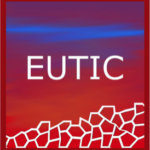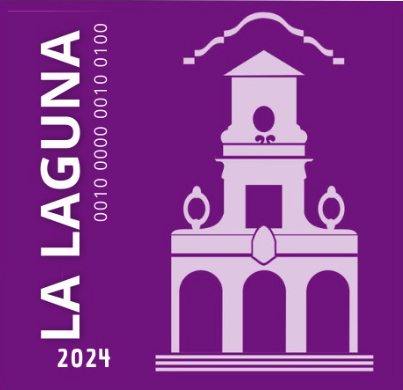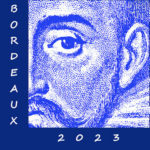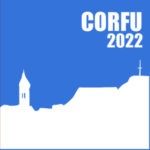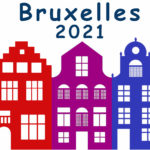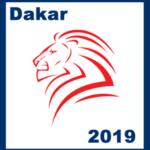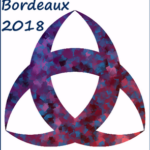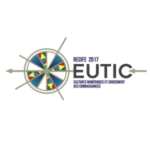to download : Call for Paper International Conference EUTIC2019
The international and interdisciplinary network for the challenges and uses of information communication technologies (EUTIC) is pleased to announce its 15th international conference organised by the Virtual University of Senegal at the ENO of Dakar (Senegal).
Smart Territories and Learning Societies
The ways of working and development strategies of organisations of all kinds have undergone profound changes in large part to the deployment of digital technologies at the dawn of the twenty-first century. This was not without sociological, economic and cultural consequences faced by all continents. This omnipresence of digitised information is indeed spreading at high speed, even if it is true that the least favoured territories progress less quickly in this respect.
Far from being a handicap, this change is a real asset because it inevitably enforces the breaking of habits and the anticipation of evolutions so as to be efficient and to quite simply “stay in the game” in what is an extremely competitive environment. We naturally think of the evolution in devices and computer hardware that have marked the last forty years and that have considerably modified working and production methods.
However, it is not this very remarkable technical aspect that constitutes the most remarkable change. Benchmarks and frames of reference are strongly modified: in only a few years, the pyramidal and hierarchical working principals that were the norms for centuries had to co-exist with transversal rationales, of reticular nature triggered by the increasing use of digital networks. If there is a revolution, it is of a paradigmatic nature and it concerns each of us henceforth because the transmission of information and knowledge modes evolve. New uses are emerging, based on transversal flows and on increasing public engagement (the “crowds” in crowdsourcing)in actions and decisions.
It is this new configuration that the notion of intelligence, defined by TLFI (Treasure of the computerised French Language) as “The ability to apprehend and organise the data of the situation to bring together applicable processes with the objective to reach, to choose the means or discover the new solutions that allow for the adaptation to action requirements”(Translation).
Smart territoires have “infrastructure and physical characteristics designed and maintained to allow for the rapid flow of information, their analysis and preservation” (Movilab 2019) (Translation). The concept of TICA (Smart Territories and learning communities) developed by Movilab (laboratories with sustainable functions) is based on the principle of collective intelligence and consists of promoting the flow of knowledge between communities and territories in the perspective of preserving the environment and sustainable development. Digital intelligence, which goes beyond classical computerisation will now pilot missions of supporting knowledge transmission communities.
Work on locally active learning communities (Querrien 2013) explores the “new ways of learning and cooperating to the production of usable knowledge” (Translation). The major idea defended by Thanh Nhgiem (2013) is to go from the punctual experience to a more global appropriation of practices for the improvement of our way of life.
It is this broadened perspective that we adopt in choosing the term “learning societies”. All areas are concerned with digital uses: at the “micro” level in interpersonal communication, more globally in economic and political spheres, in culture, environmental protection, recreation and in education and training, we see cooperation, co-working and collaborative work develop.
EUTIC2019 will allow us to renew the questioning regarding the relevance of the use of ICTs, which is used as the theme for our annual conferences. This evolution of digital practices and the constant search for improvement of tools that define them, require everyone to be on permanent watch to make the most beneficial use.
Learners, teachers, designers, citizens, we are all constantly confronted with innovation, we must be creative and adapt to new developments every day. Are we trained for this? How do we prepare our generations and the ones to come to live and anticipate the changes of this era that some call the “digital revolution”?
Conferences, such as this one, are organised by scientific communities of researchers, who are at crossroads between computer sciences and humanities, so as to contribute answers to these questions, which are consequently included in the themes to be discussed in the conferences, papers and round tables:
- Socio-economic evolutions and collective intelligence
- Interculturality and digital ecosystems
- Smart digital uses in territories
- Digital training and development dynamics
- Connected objects, augmented reality, transhumanism
- Learning systems in the 21st century
- User centred design, anticipating expectations and needs, UX-Design and HMI (Human Machine Interaction)
- Outsourcing, cloud computing, open data, open archives
- ….
The expected interventions will focus on the challenges and uses of digital technologies and on the added value they can bring to dynamics of development. The scientific committee will ensure that the content of the papers submitted by authors will have theoretical and empirical contributions that are carefully articulated and presented in a rigorously established methodology. Additionally, taking the same care to ensure quality, the plenary conferences, round tables and works presented in form of posters will offer a variety of approaches to the topics covered.
This international conference is aimed at both academics and practitioners as well as policy makers interested in questions about ICT impacts on change strategies. The rich and the diverse contributions will allow for scientific deliberations and international research valorisation as well as the widening of perspectives in the objective of international cooperation.
Bibliographical Elements
- CTRL Centre national de ressources textuelles et lexicales. Article Intelligence http://www.cnrtl.fr/definition/INTELLIGENCE consulté le 15-01-2019
- Movilab Définition des TICA. Consulté le 17-01-2019 http://movilab.org/index.php?title=Définition_des_%22TICA%22
- Nghiem, T. (2013). Modèles coopératifs émergents. Multitudes, (1), 110-120.
- Querrien, A. (2013). Territoires et communautés apprenantes. Multitudes, 52(1), 45-51. doi:10.3917/mult.052.0045.
- UIL. 2014a. Référentiel de la ville apprenante. https://docplayer.fr/17389500-Referentiel-des-villes-apprenantes-liste-de-caracteristiques-cles-et-methodes-d-evaluation.html consulté le 6-02-2019
- UIL. 2014b. Rapport de la Conférence internationale sur les villes apprenantes, 21-23 octobre 2013, Pékin : Apprentissage tout au long de la vie pour tous : inclusion, prospérité et pérennité. https://docplayer.fr/49889802-Conference-internationale-sur-les-villes-apprenantes.html
- Zhang, C. Yuan, D., and Shi, F. 2013. Towards The Learning City of Beijing: a review of the contribution made by the differenteducation sectors, Glasgow Caledonian University
